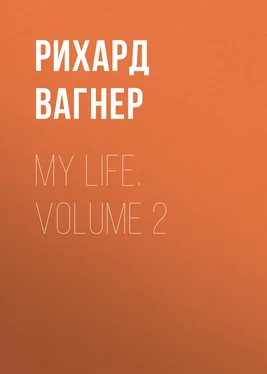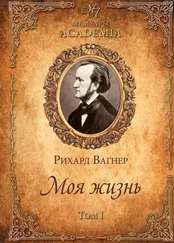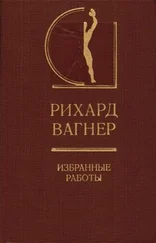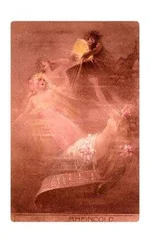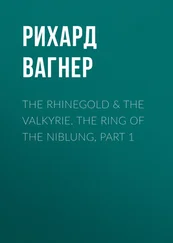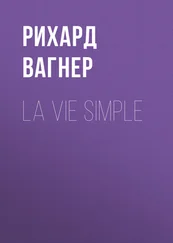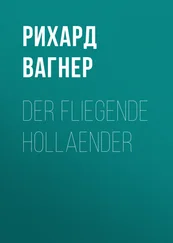Рихард Вагнер - My Life. Volume 2
Здесь есть возможность читать онлайн «Рихард Вагнер - My Life. Volume 2» — ознакомительный отрывок электронной книги совершенно бесплатно, а после прочтения отрывка купить полную версию. В некоторых случаях можно слушать аудио, скачать через торрент в формате fb2 и присутствует краткое содержание. Жанр: Биографии и Мемуары, foreign_home, music_dancing, music_dancing, foreign_antique, на английском языке. Описание произведения, (предисловие) а так же отзывы посетителей доступны на портале библиотеки ЛибКат.
- Название:My Life. Volume 2
- Автор:
- Жанр:
- Год:неизвестен
- ISBN:нет данных
- Рейтинг книги:3 / 5. Голосов: 1
-
Избранное:Добавить в избранное
- Отзывы:
-
Ваша оценка:
- 60
- 1
- 2
- 3
- 4
- 5
My Life. Volume 2: краткое содержание, описание и аннотация
Предлагаем к чтению аннотацию, описание, краткое содержание или предисловие (зависит от того, что написал сам автор книги «My Life. Volume 2»). Если вы не нашли необходимую информацию о книге — напишите в комментариях, мы постараемся отыскать её.
My Life. Volume 2 — читать онлайн ознакомительный отрывок
Ниже представлен текст книги, разбитый по страницам. Система сохранения места последней прочитанной страницы, позволяет с удобством читать онлайн бесплатно книгу «My Life. Volume 2», без необходимости каждый раз заново искать на чём Вы остановились. Поставьте закладку, и сможете в любой момент перейти на страницу, на которой закончили чтение.
Интервал:
Закладка:
The waters, whether for internal or external use, are known to be powerfully impregnated with iron, and in taking them I had the same experience as on previous occasions. With my extremely excitable nervous system, they were a source of more trouble than relief to me. The leisure hours were filled up by reading Goethe's Wahlverwandtschaften, which I had not read since I was quite young. This time I absolutely devoured the book from beginning to end, and it also became a source of heated discussions between Herwegh and myself. As Herwegh possessed an extensive knowledge of the characteristics of our great poetic literature, he felt it incumbent on him to defend the character of Charlotte against my attacks. My vehemence on the subject showed what a strange creature I still was at over forty, and in my heart of hearts I had to admit that Herwegh judged Gothe's poem objectively more correctly than I did, as I always felt depressed by a kind of moral bondage, to which Herwegh, if he had ever experienced it at all, submitted placidly, owing to his peculiar relations with his strong-minded wife. When the time came to an end, and I realised that I had not much to hope for from the treatment, we returned to Zurich. This was about the middle of August, and I now began to look forward impatiently to my tour in Italy. At last, in the month of September, which I had been told was quite suitable for visiting Italy, I set off on the journey via Geneva, full of indescribable ideas of what was before me, and of what I might see as the outcome of my search. Once again amid all sorts of strange adventures, I reached Turin by special mail-coach over Mont Cenis. Finding nothing to detain me there more than a couple of days, I hurried on to Genoa. There, at any rate, the longed-for marvels seemed to be within reach. The grand impression produced on me by that, city overcomes, even to this day, any longing to visit the rest of Italy. For a few days I was in a dream of delight; but my extreme loneliness amidst these impressions soon made me feel that I was a stranger in that world, and that I should never be at home in it. Absolutely inexperienced as I was in searching out the treasures of art on a systematic plan, I gave myself up in this new world to a peculiar state of mind that might be described as a musical one, and my main idea was to find some turning-point that might induce me to remain there in quiet enjoyment. My only object still was to find a refuge where I might enjoy the congenial peace suited to some new artistic creation. In consequence, however, of thoughtlessly indulging in ices, I soon got an attack of dysentery, which produced the most depressing lassitude after my previous exaltation. I wanted to flee from the tremendous noise of the harbour, near which I was staying, and seek for the most absolute calm; and thinking a trip to Spezia would benefit me, I went there by steamer a week later. Even this excursion, which lasted only one night, was turned into a trying adventure, thanks to a violent head-wind. The dysentery became worse, owing to sea-sickness, and in the most utterly exhausted condition, scarcely able to drag myself another step, I made for the best hotel in Spezia, which, to my horror, was situated in a noisy, narrow street.
After a night spent in fever and sleeplessness, I forced myself to take a long tramp the next day through the hilly country, which was covered with pine woods. It all looked dreary and desolate, and I could not think what I should do there. Returning in the afternoon, I stretched myself, dead tired, on a hard couch, awaiting the long-desired hour of sleep. It did not come; but I fell into a kind of somnolent state, in which I suddenly felt as though I were sinking in swiftly flowing water. The rushing sound formed itself in my brain into a musical sound, the chord of E flat major, which continually re-echoed in broken forms; these broken chords seemed to be melodic passages of increasing motion, yet the pure triad of E flat major never changed, but seemed by its continuance to impart infinite significance to the element in which I was sinking. I awoke in sudden terror from my doze, feeling as though the waves were rushing high above my head. I at once recognised that the orchestral overture to the Rheingold, which must long have lain latent within me, though it had been unable to find definite form, had at last been revealed to me. I then quickly realised my own nature; the stream of life was not to flow to me from without, but from within. I decided to return to Zurich immediately, and begin the composition of my great poem. I telegraphed to my wife to let her know my decision, and to have my study in readiness.
The same evening I took my place on the coach going to Genoa along the Riviera di Levante. I again had the opportunity of getting exquisite impressions of the country during this journey, which lasted over the whole of the following day. It was, above all, the colouring of the wonders that presented themselves to my eyes which gave me such delight—the redness of the rocks, the blue of the sky and the sea, the pale green of the pines; even the dazzling white of a herd of cattle worked upon me so powerfully that I murmured to myself with a sigh, 'How sad it is that I cannot remain to enjoy all this, and thus gratify my sensuous nature.'
At Genoa I again felt so agreeably stimulated that I suddenly thought I had only yielded to some foolish weakness, and resolved to carry out my original plan. I was already making arrangements for travelling to Nice along the celebrated Riviera di Ponente, of which I had heard so much, but I had scarcely decided on my former plans, when I realised that the fact which refreshed and invigorated me was not the renewal of my delight over Italy, but the resolve to take up my work again. And indeed, as soon as I made up my mind to alter this plan, the old condition set in once more, with all the symptoms of dysentery. I thereupon understood myself, and giving up the journey to Nice, I returned direct by the nearest route via Alessandria and Novara.
This time I passed the Borromean Islands with supreme indifference, and got back to Zurich over the St. Gotthard.
When I had once returned, the only thing that could have made me happy would have been to start at once on my great work. For the present, however, I saw that it would be seriously interrupted by my appointment with Liszt, who was to be in Bale at the beginning of October. I was restless and annoyed at being so unsettled, and spent the time in visiting my wife, who, thinking that I would be away longer, was taking the waters at Baden am Stein. As I was easily prevailed upon to try any experiment of this kind if only the person who recommended it were sufficiently sanguine, I allowed myself to be persuaded into taking a course of hot baths, and the process heightened my excitment considerably.
At last the time for the meeting in Bale arrived. At the invitation of the Grand Duke of Baden, Liszt had arranged and conducted a musical festival in Karlsruhe, the aim of which was to give the public an adequate interpretation of our respective works. As I was not yet allowed to enter the territory of the German confederation, Liszt had chosen Bale as the place nearest to the Baden frontier, and had brought with him some young men who had been his devoted admirers in Karlsruhe, to give me a hearty welcome.
I was the first to arrive, and in the evening, while sitting alone in the dining-room of the hotel, 'Zu den drei Konigen,' the air of the trumpet fanfare (from Lohengrin) announcing the King's arrival, sung by a strong though not numerous chorus of men's voices, reached me from the adjacent vestibule. The door opened and Liszt entered at the head of his joyful little band, whom he introduced to me. I also saw Bulow again, for the first time since his adventurous winter visit to Zurich and St. Gall, and with him Joachim, Peter Cornelius, Richard Pohl, and Dionys Pruckner.
Читать дальшеИнтервал:
Закладка:
Похожие книги на «My Life. Volume 2»
Представляем Вашему вниманию похожие книги на «My Life. Volume 2» списком для выбора. Мы отобрали схожую по названию и смыслу литературу в надежде предоставить читателям больше вариантов отыскать новые, интересные, ещё непрочитанные произведения.
Обсуждение, отзывы о книге «My Life. Volume 2» и просто собственные мнения читателей. Оставьте ваши комментарии, напишите, что Вы думаете о произведении, его смысле или главных героях. Укажите что конкретно понравилось, а что нет, и почему Вы так считаете.
